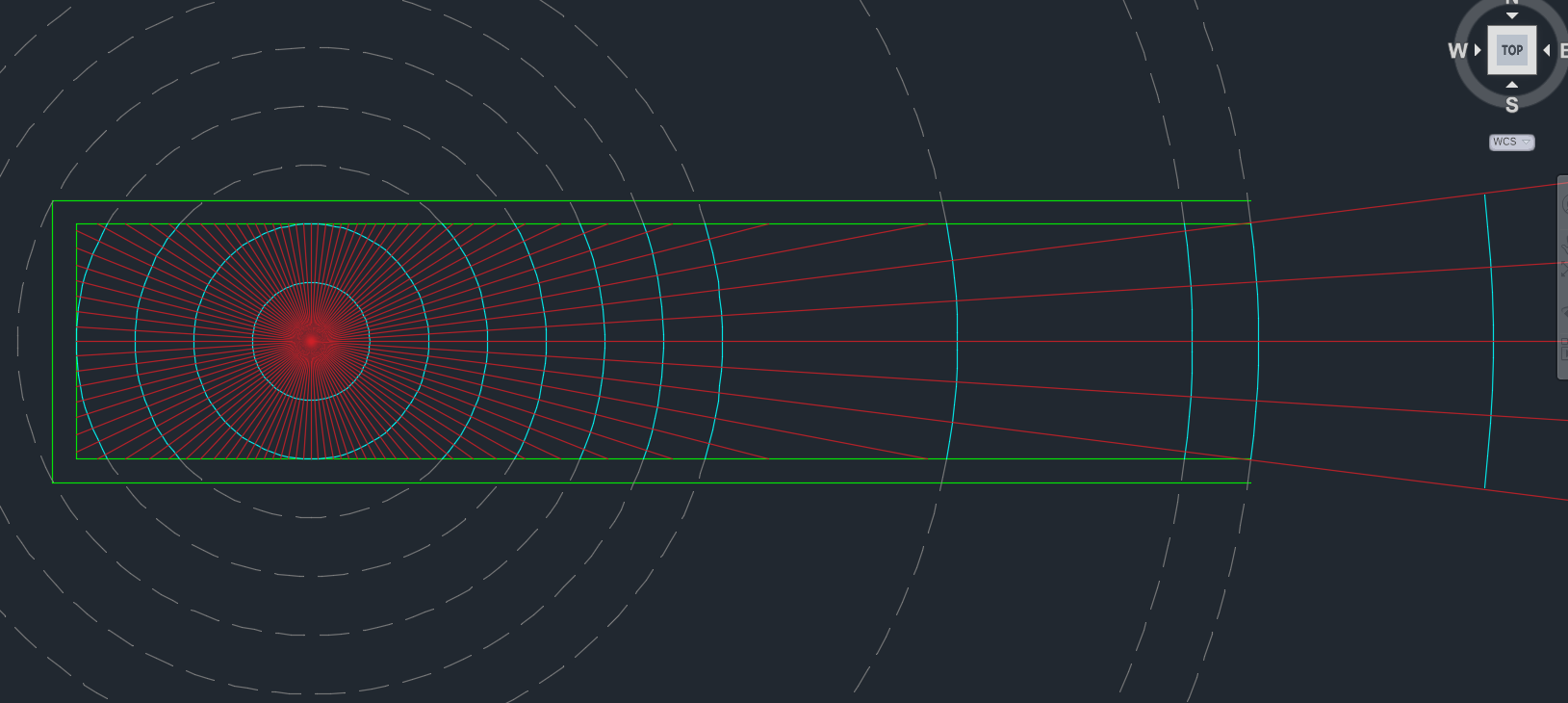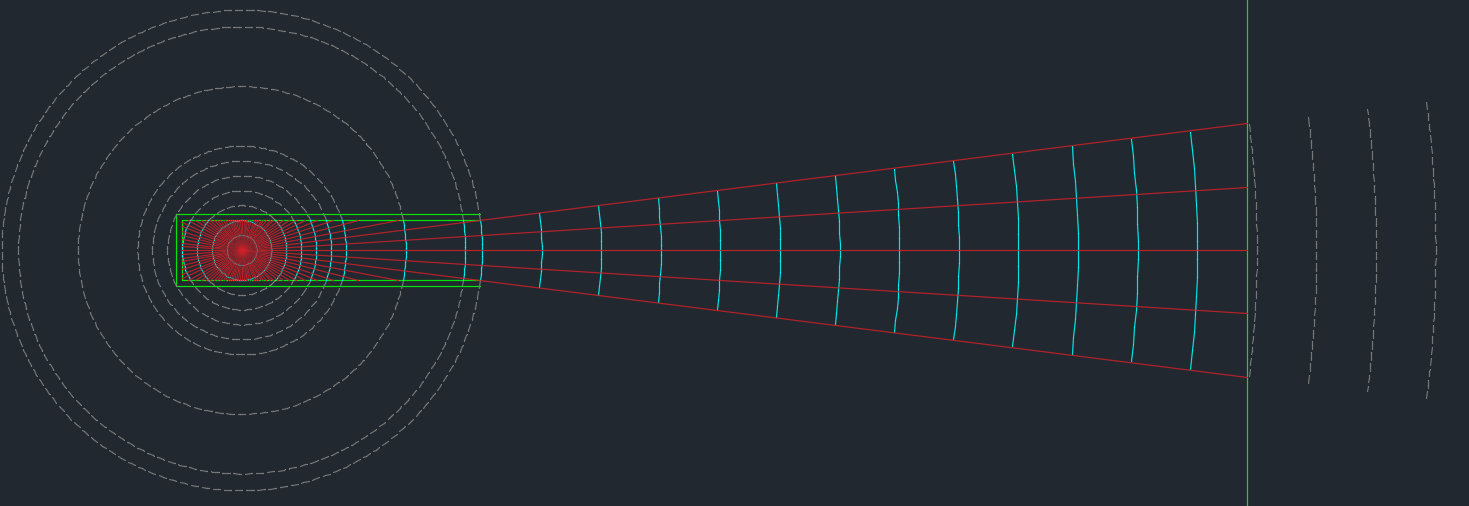|
|
 Originally Posted by Renton

Okay, correct my current lack of understanding of black holes.
I'll give it a shot.
 Originally Posted by Renton

My layman's knowledge of SR is that if a human was accelerated to nearly c, he would experience time dilation. His clock would tick normally, while time rushed by for stationary observers. If your mass could be accelerated to c, your time dilation would be infinite, and you would see the entire universe shrivel up and die around you in a nanosecond.
You have this so close, just the opposite effect.
The faster you travel relative to another ... umm ... anything, the more you observe time dilation (and space contraction in the direction of your relative motion).
So as you approach c, you see all the other clocks in the universe slow down ever more and more, approaching the asymptote of stopping altogether.
All the objects in front of you and behind you would be much closer than before, while the stuff off to your sides would remain as far away as you expected.
If I am in the universe you are observing, I would see my clock tick normally, and yours would tick very slowly. Also, I would observe your passing ship as squished or shortened in your direction of travel.
 Originally Posted by Renton

Carrying that same concept over to GR, something has me confused about black holes. According to a physics forum thread I read, the effects of gravitational time dilation are identical to velocity time dilation at the escape velocity of the mass that is creating the gravitational field. This means, as far as I can tell, that everything within the event horizon of a black hole experiences infinite time dilation, i.e. a person in the process of crossing the event horizon would see the entire universe go dark in a fraction of a second. And observers from an arbitrary distance would see him start to get flattened into the EH asymptotically but he would never get swallowed up.
Both observers see the other slow to a standstill. Both would observe the other's clocks slow down ever more and more.
Both observers would see the other one becoming more and more faint and ghost-like. The 'number of photons emitted' is conserved in both reference frames, but the time it takes to emit them is not conserved.
The outside observer would definitely see the falling observer as ever more and more red-shifted. I think (and I may be wrong) that the person falling in would see the outside observer as ever more blue-shifted. This is because photons traveling "uphill" lose energy, while photons traveling "downhill" gain energy.
Red light is lower in energy than blue light, so we tend to shorthand "blue-shift" to mean increasing frequency and "red-shift" to indicate decreasing frequency.
"the effects of gravitational time dilation are identical to velocity time dilation at the escape velocity of the mass that is creating the gravitational field"
Umm.. huh? I might not be understanding this, but...
Both are dilation, there is no "balancing" happening here. If one were dilation and one were contraction, then there would be a surface where the opposing effects canceled each other out. These two effects are not opposing each other, though.
"This means, as far as I can tell, that everything within the event horizon of a black hole experiences infinite time dilation"
For anything moving slower than the speed of light, there is not enough energy in the universe to accelerate it to the speed of light.
Experiments and observations reveal, so far as we know, that only photons travel at the speed of light.
If anything, the time dilation would be ever approaching the asymptote of complete stoppage, but would never be truly, completely stopped.
 Originally Posted by Renton

My problem with this account is that everything I've read suggests that a person/mass/whatever would survive crossing the EH unscathed, and wouldn't even experience extreme tidal forces until well within the EH assuming a large, non-spinning black hole.
Yeah, event horizons are tricky things. They are currently poorly understood, and the models which provide some understanding have fatally flawed assumptions incorporated into them. E.g. a non-spinning black hole is almost definitely science fiction.
The complicated bit is that we have to always talk about what an observer would observe. The observer always experiences their own time and space as "ordinary" and observe "distant" space-times as distorted. (I think)
Unless the arbitrary "distant" is on length scales of the observer or smaller, there would be no notable effects for the observer. When the difference between the gravitational force near the observer's feet becomes noticeably different from the force near his head, then things are getting bad real fast.
 Originally Posted by Renton

It seems far more plausible that mass is incapable of existing in a c-escape-velocity gravitational field, and that black holes are just big balls of tiramisu that just perpetually flatten objects onto their EH's. If one could cross the EH unscathed, wouldn't the black hole just spit him out in an instant because it would evaporate enough mass of Hawking radiation well before he was in any danger? Of course trillions of years might have elapsed.
IDK.
I don't think it's "instantaneous." That word is meaningless in GR. Temporally distinct objects don't share a "same time" for things to happen simultaneously.
Entropy theory says a lot of interesting things about the surface of a black hole, as far as conservation laws are concerned.
mmmmmmmm. Tiramisu. 
|






 Reply With Quote
Reply With Quote
















